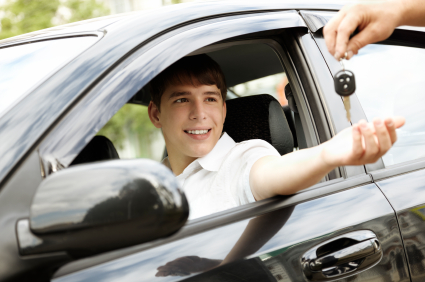1. Risk Taking: it’s important to know that it can happen to you. Having the mindset that it will never happen to you or you are too smart to make a stupid decision are excuses we hear all too often. Car crashes are the leading cause of injury and death for people ages 15 to 20. It is not just about you: crashes affect pedestrians, passengers, and other drivers, as well as their families. You do not want to do something you will regret for the rest of your life.
2. Unbuckled: Use a safety belt and insist that all of your passengers do the same. About 2/3 of teens killed in vehicle crashes were not wearing seat belts. Wearing a seat belt reduces your chances of being hurt or killed in a crash by 45%.
3. Speeding: 1/3 teen fatalities involve speeding. Obey the speed limit at all times.
4. Rowdy Riders: The more people that are in the car, the more distractions you have as a driver. Don’t load your car up with friends. Adding one teen passenger to a vehicle increases a 16-or 17-year-old driver’s crash risk by 50%.
5. Cell Phones: Just drive. Focus on driving and nothing else. Ask your friend in the passenger seat to answer your texts or phone calls or put your phone in the glove compartment and on silent so you can’t hear or see it. Talking on the cell phone while driving can double your reaction time.
6. Radio/iPod: Turn the music off when learning to drive. Research shows that adjusting the radio is the most common distraction for drivers between the ages of 16 and 20.
7. Late Night Cruising: Don’t drive late at night. As an inexperienced driver, it’s more challenging to drive at night. Even for experienced drivers it can be a very challenging task! Teen crash rates at night (9pm-6am) are twice as high as daytime rates.
8. DUI: Stay sober and never get in the car with a friend who has been drinking. Of 16- and 17-year-old drivers killed in crashes, one in six would have been considered legally intoxicated by adult standards.
9. Peer Pressure: Make good choices and don’t be afraid to speak up for your own safety and the safety of those around you. Before you get in a car with a friend, make sure you trust them and they have not been drinking or are not under the influence of drugs.
10. Overconfidence: Inexperience and overconfidence can lead to crashes when new drivers encounter unfamiliar or unexpected situations. Parents should supervise and monitor teen drivers – even after they get their license. Research shows that most parents become less involved in their teens driving habits after they get their license.
Talk to your teen about the dangers and consequences of distracted while driving. Contact us today for a free consultation.
Source: AAA

